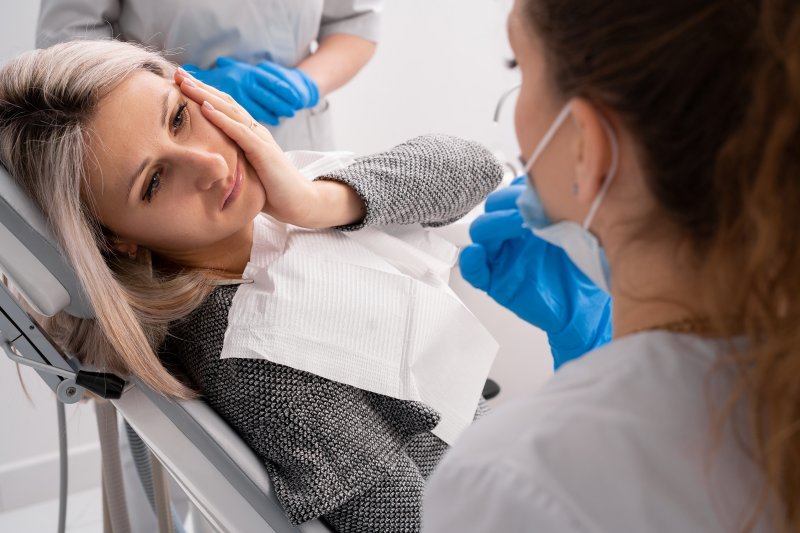
It can be easy to assume that your teeth are invincible until you find out that they aren’t. Chips are common oral injuries, and they can vary in severity from hardly noticeable to pressing dental emergencies. Thankfully, knowing how to treat a chipped tooth and where to get the help you need can take a lot of stress out of a crisis and set you up for many years with a healthy and beautiful smile. Here’s a brief guide to how you can best address a chipped tooth.
What Can Chip Teeth?
While your teeth are protected by a sturdy layer of dental enamel, the hardest substance in the human body, they are not invincible and can be weakened by frequent stress, poor hygiene, and acid exposure. A few common causes of chipped teeth include:
- Sports injuries
- Bicycle accidents
- Chewing too vigorously on crunchy foods
- Chewing on non-food items like ice, paperclips, and writing utensils
- Dry mouth depriving the teeth of proper lubrication
- Using your teeth to open packages or bottles
How Should I Have Chipped Teeth Treated?
If the chip is minor, has no sharp edges, and is not causing sensitivity or other discomfort, it can probably wait for a few days before receiving treatment. However, a chip or fracture that exposes the soft pulp tissues inside the tooth constitutes a dental emergency that requires immediate attention from a qualified dentist. When you chip your tooth, follow these steps:
- If you can, locate any large pieces of your tooth and place them in a clean container for transport to your dentist’s office.
- Call your dentist to explain the situation and schedule an appointment.
- Rinse your mouth with saltwater to remove germs and any lingering shards of enamel.
- If the chip is causing you discomfort, you can cover it with dental wax or a small bit of sugar-free gum.
- Take over-the-counter pain medication according to the instructions on the bottle if necessary.
- When it is nearly time for your appointment, make your way to your dentist’s office to receive emergency care.
How Can I Prevent Chipped Teeth?
There are a number of ways to protect your teeth from injury. If you grind your teeth in your sleep, you can wear a customized nightguard from your dentist to bed to mitigate the damage. If you play sports or ride your bike, wearing a customized athletic mouthguard can save you from many dental emergencies. Practicing excellent oral hygiene and refraining from using your teeth to open packages will also reduce your risk of dental damage.
While chipped teeth can be alarming, they are not the worst dental emergencies. Your dentist is trained and equipped to address a wide range of oral injuries so your smile can stay healthy and beautiful.
About the Author
Dr. Ashraf Seif earned his dental degree at the Loma Linda School of Dentistry and has received postgraduate training in sleep apnea dentistry and oral sedation. He is proud to be a member of the American Dental Association and the Texas Dental Association. His office in Baytown offers general, restorative, cosmetic, and emergency dentistry. If you have chipped a tooth, dial (281) 837-9122. For non-urgent inquiries, contact his office online.
